Learn How to Navigate The Costs, Challenges, and Opportunities of Distressed Properties to Unlock Major Investment Potential

Distressed properties stand out as both a challenge and an opportunity in the world of real estate investing. These properties - often in foreclosure, short sales, or severe disrepair - can be purchased below market value, offering investors a path to significant profit. However, they also come with risks: costly repairs, financing hurdles, and legal complexities.
For investors in New England’s dynamic property market, understanding these factors is essential before diving in. Lenders like Bryan Joyce help investors secure the right financing for these unique opportunities, from hard money loans to bridge financing. Let’s explore the advantages and potential pitfalls of buying distressed real estate - and what to know before signing the deal.
What are Distressed Properties?
A distressed property is one where the owner can no longer meet financial obligations, resulting in foreclosure, short sale, or lender repossession. In some cases, the property may also be in physical distress, requiring substantial repairs or updates to make it marketable.
Distressed properties often include:
- Foreclosures: Owned by banks after the borrower defaults.
- Short Sales: Sold for less than the remaining mortgage balance with lender approval.
- REOs (Real Estate Owned): Properties that have gone through foreclosure but failed to sell at auction.
- Physically Distressed Homes: Properties in poor condition due to neglect, age, or damage.
In 2025, foreclosures across the U.S. rose 7% year-over-year, with over 400,000 filings recorded nationally, many in older, higher-cost regions like New England [https://www.attomdata.com/news/]. This rise has created new openings for savvy investors ready to take on the challenge.
Advantages of Buying Distressed Properties
- Below-Market Pricing
The most significant advantage of distressed properties is price. Because these homes are often sold “as-is” and require considerable work, sellers—whether banks or private owners—are typically motivated to close quickly. Investors can frequently acquire them 10 - 40% below market value, depending on the location and condition. - Strong Return Potential
With thoughtful renovation and market timing, distressed properties can generate substantial profits. Flippers can resell for large margins, while buy-and-hold investors can increase long-term value through appreciation and rental income.
According to CoreLogic, U.S. home prices rose 5.9% year-over-year in 2024 [https://www.cotality.com/press-releases/us-corelogic-sp-case-shiller-index-november-annual-growth-picks-back-up-by-3-8-year-over-year], meaning a renovated property in a strong market can yield significant appreciation once improvements are made. - Less Competition in Certain Markets
Distressed properties often deter casual buyers who lack the cash or appetite for risk, creating opportunities for investors who understand the process. By acting decisively and leveraging quick-access financing (like hard money loans), investors can secure deals that traditional buyers overlook. - Customization and Value Creation
Because these properties typically require major repairs or renovations, investors have complete control over how they add value—whether that means modernizing interiors, converting layouts, or upgrading energy efficiency to appeal to today’s buyers or renters.
Risks and Challenges of Distressed Property Investments
- Hidden Repair Costs
The most considerable risk is underestimating renovation costs. Distressed properties often come with structural issues, outdated systems, or code violations that are not always visible during initial inspections. What looks like a simple fic can quickly balloon into a costly project.
Investors should always budget 20 - 30% extra beyond initial repair estimates that work with trusted contractors familiar with older or neglected properties, especially in regions like New England, where housing stock can be over a century old. - Financing Difficulties
Traditional lenders are hesitant to finance distressed properties because they fail to meet livability or collateral standards. This is where alternative financing, such as hard money or bridge loans, can make a difference. These loans are asset-based and designed for speed, allowing investors to close quickly and begin renovations before refinancing into long-term debt. - Legal and Title Issues
Distressed sales can involve complex legal proceedings, including unpaid taxes, liens, or ownership disputes. Before purchasing, investors should work with an experienced real estate attorney and title company to perform due diligence and ensure clear ownership. - Market Volatility
A successful investment depends on market conditions. If demand slows or interest rates rise during the renovation period, resale profits can shrink. Understanding local trends such as job growth, housing supply, and economic stability is key before committing.
Best Practices for Investing in Distressed Properties
- Get Pre-Approved Financing Early - Hard money lenders like Bryan Joyce can help investors close quickly, a significant advantage when competing for deals.
- Conduct Thorough Due Diligence - Always order an inspection, title search, and market analysis.
- Work with Experienced Partners - Contractors, real estate agents, and attorneys experienced in distressed properties can save time and money.
- Plan an Exit Strategy - Whether flipping or holding, define your strategy (and timeline) from the start.
- Know Your Numbers - Include purchase price, rehab costs, holding expenses, and resale or rental value in your profit calculations.
Distressed properties can be gold mines for investors who know how to manage the risks. They offer exceptional opportunities to buy low, add value, and sell or rent high. However, success requires careful due diligence, smart budgeting, and the right financing partner.
For New England investors looking to explore distressed real estate opportunities, working with an experienced loan broker like Bryan Joyce provides the financial tools and market insight needed to turn challenging properties into profitable investments.
Bryan Joyce holds a B.A. in Economics from the University of Maine at Farmington. He has advised clients nationwide, but his expertise and reputation are especially strong across Boston and New England, where he has built enduring relationships within the real estate investment community. Read more about Bryan



